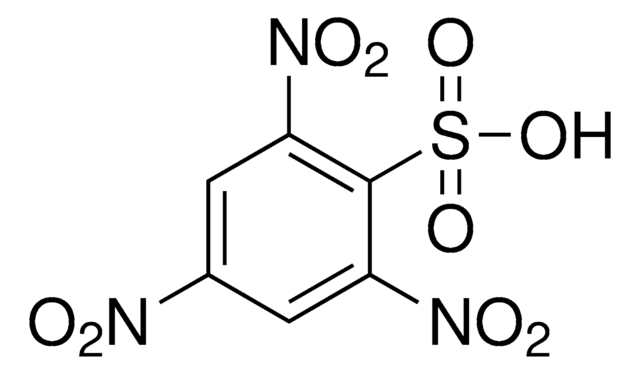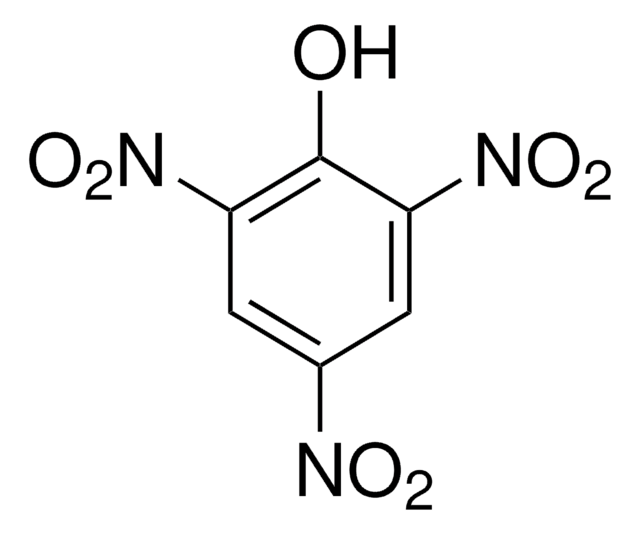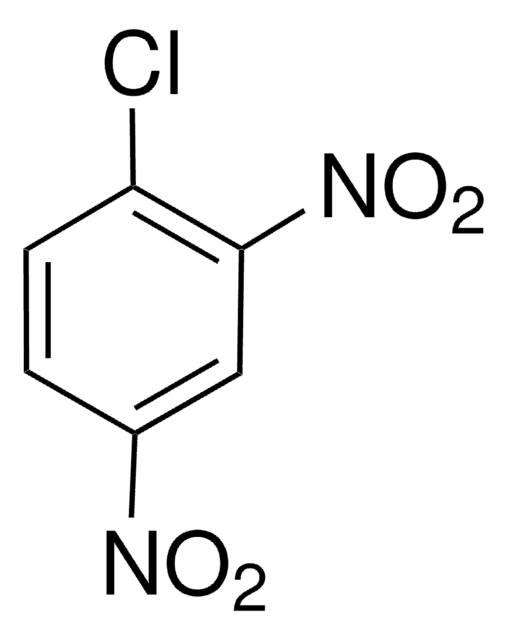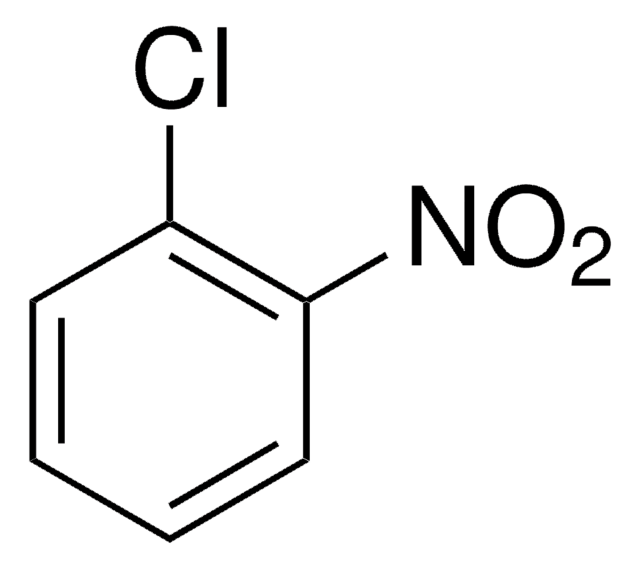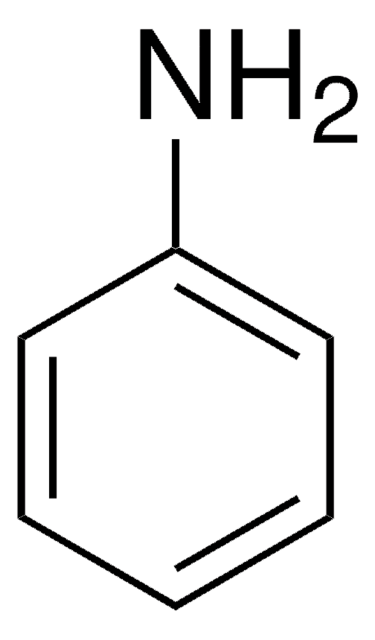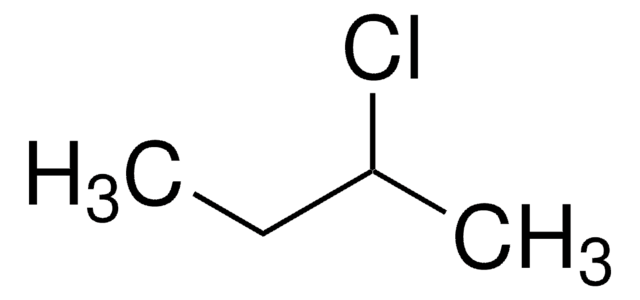79874
2-Chloro-1,3,5-trinitrobenzene
≥98.0% (HPLC)
Synonym(s):
2,4,6-Trinitrochlorobenzene
Sign Into View Organizational & Contract Pricing
All Photos(1)
About This Item
Empirical Formula (Hill Notation):
C6H2ClN3O6
CAS Number:
Molecular Weight:
247.55
Beilstein:
1588666
EC Number:
MDL number:
UNSPSC Code:
12352100
PubChem Substance ID:
NACRES:
NA.22
form:
lumps
Assay:
≥98.0% (HPLC)
Recommended Products
Quality Level
Assay
≥98.0% (HPLC)
form
lumps
functional group
chloro
nitro
SMILES string
[O-][N+](=O)c1cc(c(Cl)c(c1)[N+]([O-])=O)[N+]([O-])=O
InChI
1S/C6H2ClN3O6/c7-6-4(9(13)14)1-3(8(11)12)2-5(6)10(15)16/h1-2H
InChI key
HJRJRUMKQCMYDL-UHFFFAOYSA-N
Other Notes
moistened with ~15% water
Signal Word
Danger
Hazard Statements
Precautionary Statements
Hazard Classifications
Acute Tox. 1 Dermal - Acute Tox. 2 Inhalation - Acute Tox. 2 Oral - Aquatic Acute 1 - Aquatic Chronic 1 - Flam. Sol. 1
Supplementary Hazards
Storage Class Code
4.1B - Flammable solid hazardous materials
WGK
WGK 2
Flash Point(F)
Not applicable
Flash Point(C)
Not applicable
Personal Protective Equipment
dust mask type N95 (US), Eyeshields, Gloves
Choose from one of the most recent versions:
Already Own This Product?
Find documentation for the products that you have recently purchased in the Document Library.
L A Smyth et al.
American journal of transplantation : official journal of the American Society of Transplantation and the American Society of Transplant Surgeons, 17(1), 60-68 (2016-08-09)
Understanding the evolution of the direct and indirect pathways of allorecognition following tissue transplantation is essential in the design of tolerance-promoting protocols. On the basis that donor bone marrow-derived antigen-presenting cells are eliminated within days of transplantation, it has been
Jing Tian et al.
Carbohydrate polymers, 90(4), 1642-1647 (2012-09-05)
A water-soluble polysaccharide (LJP-1), with a molecular weight of 1.8×10(5) Da, was isolated from the flower buds of Lonicera japonica. Gas chromatography (GC) analysis showed that the LJP-1 was mainly composed of d-glucose and a small amount of d-arabinose. On
Eriko Suwa et al.
European journal of pharmacology, 667(1-3), 383-388 (2011-06-15)
Effects of the histamine H(4) receptor antagonist 1-[(5-chloro-1H-indol-2-yl)carbonyl]-4-methylpiperazine (JNJ7777120) were examined for 99 days in a long-term experimental model of pruritic dermatitis induced by repeated challenge with 2,4,6-trinitrochlorobenzene (TNCB) in HR-1 mice. Repeated application of TNCB to the back skin
T Fukuyama et al.
Toxicology letters, 213(3), 392-401 (2012-07-31)
Immunosuppressive environmental chemicals may exacerbate allergic diseases, including atopic dermatitis (AD). We examined the effects of the immunosuppressive environmental chemicals methoxychlor, parathion, piperonyl butoxide, dexamethasone, and cyclophosphamide on picryl-chloride-induced AD in NC/Nga mice. Mice were orally exposed (age, 5 weeks)
E Takita et al.
The British journal of dermatology, 168(1), 39-46 (2012-07-28)
Immediate-type skin allergic reactions, such as passive cutaneous anaphylactic reaction, are associated with circadian rhythm, but the role of circadian mechanisms on delayed-type skin allergic reactions, such as contact hypersensitivity (CHS), remains uncertain. In mice, CHS, a T-cell-mediated immune response
Our team of scientists has experience in all areas of research including Life Science, Material Science, Chemical Synthesis, Chromatography, Analytical and many others.
Contact Technical Service